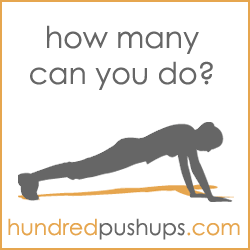Acne is another bump from the recession; stress a leading cause of breakouts
Samantha Critchell, THE ASSOCIATED PRESS
Here's another bump in the landscape of economic meltdown: adult acne.
Stress is a leading cause of breakouts, and there's no shortage of that these days in the office of Oakland, Calif.-based Dr. Katie Rodan. Many of her clients are either in the financial field or have husbands who are.
Meanwhile, Manhattan dermatologist Dr. Cheryl Karcher is performing far fewer liposuctions or Botox injections but is seeing more patients than ever. "They're all insurance patients for eczema, acne and warts - they're all another hit from the immune system," she says.
Karcher explains that the nervous system and hormone systems work together. "They are tightly intertwined and the nervous system is stimulated by stress. ... I am seeing more acne than you can believe."
A traffic jam or a spat with a significant other can set off a rise in cortisol that causes a breakout, but there isn't usually a collective mass of people experiencing a high-anxiety event like there is right now with the recession.
With a 16-year-old daughter to care for - and college to pay for - as well as elderly parents, Zondra Barricks says the economy weighs on her almost every day.
"My skin is a barometer of my emotional state," says Barricks, a patient of Rodan. "I am trying to take care of myself, behind the scenes I'm taking care of my skin. ... I have to cut back, but I don't want to look the raggedy way I'm feeling."
Dr. Kathy Fields points to a widely circulated Stanford University study from 2002 that found students had more severe acne during exam periods than other times of the year.
"When your cortisol levels go up - and we're having so many spikes during the day - that aggravates acne. Your cortisol levels go up more in one day than a caveman had in one year," says Fields, a co-founder with Dr. Rodan of the anti-acne formula Proactiv.
Makeup - oil-free and noncomedogenic concealers - can be a quick fix without exacerbating the problem. Rodan says mineral makeup is OK and some concealing products contain salicylic acid, which would at least mean that if some makeup is creeping into the pores, some medicine is going with it.
Still, it's easier to minimize acne if you get to it before it's fully developed, she says.
If you're not sleeping or if you find yourself picking at your skin even before a pimple appears, she says, you might be helping to trigger a breakout. Instead, use an anti-acne product and manage the stress.
"Try a yoga class," Rodan suggests.
"If you're so stressed that it's affecting your skin, then it's affecting the rest of your body," adds Karcher, who consults for Avon. "It would be a disservice if you're just treating your acne, although you do want to treat it. Not doing it would cause even more stress."
Karcher recommends over-the-counter products with salicylic acid or glycolic acid, which can help unclog pores. If pimples are already visible - and especially if you have an upcoming event for which you feel appearance matters, such as a job interview - consider a cortisone injection at a dermatologist's office, Fields says, or try over-the-counter cortisone products.
Some products also contain sulphur, which is an old-time remedy for redness and swelling.
If there's still no improvement, then it's time for benzoyl peroxide, Rodan says.
The single worst thing you could do, according to Rodan: pop your pimples. "Infections also increase when cortisol levels are high and wound healing slows down."
---
Sadly, I've become a victim of adult acne due to stress.
Considering I've never had bad acne even through puberty, I knew that this wasn't normal. My doctor told me it was hormones and that I should go on birth control. That answer wasn't good enough for me. Oh and let me tell you how I'm now on my third month of an expensive birth control (Diane-35) that's specifically catered to those affected by severe acne and my acne looks a tiny bit better than it did three months ago. It all comes down to what the article suggests . . . stress.
The acne started last summer (ironically after I got myself into a long distance relationship, which is all kinds of stress on its own) and continued to get worse. Because I didn't want to go with my doctor's "quick fix" right away, I decided to use a cream she suggested. All that cream ever ended up doing is making my clothes smell . . . months later, I
still can't get the smell off of my clothes and I stopped using it months ago! Disgusting and a waste of money. Then I decided to give the Pill a chance and it's very slowly starting to work. I'm going to go flat broke before I start seeing any results. With the health risks involved with taking this specific birth control, I won't be using it for much longer.
This past fall, my workplace went through layoffs and a pay cut (ouch!). Although I was a "survivor", this caused a lot of uncertainty around the office which resulted in a lot of stress. I had moved out of my parents' house only a few months before and was now supporting myself, while trying to pay off loads of student debt at the same time. A pay cut never helps to make these situations better. Although I knew I had it better than most people, it was still a struggle and something to adjust to.
I also never get enough sleep during the workweek. I blame this on being a night owl and there not being enough hours in the day to do everything I need/want to. Add to all of this the daily stresses of life and you have a complete mess.
After reading this article, I have decided to start doing some yoga at home. Although I can't control all stress (such as worrying about work and the economy), I am trying to lower the stress levels in other aspects of my life.
Most importantly, I need to stop picking at my acne. Can someone write an article about how I go about doing that without having to tie my hands up? Really, this is a terrible habit and it clearly isn't helping the situation. Sadly, I have lots of acne scars to prove it.








